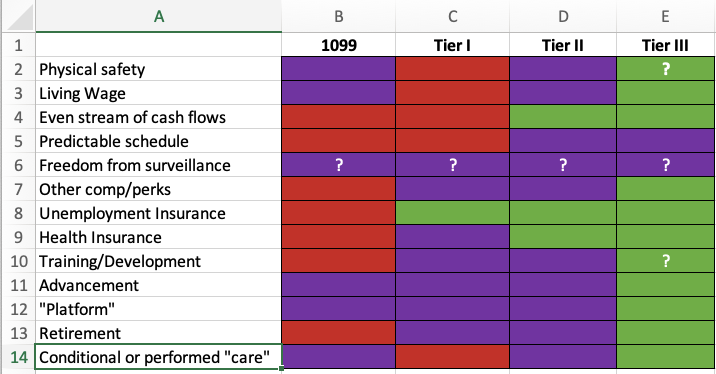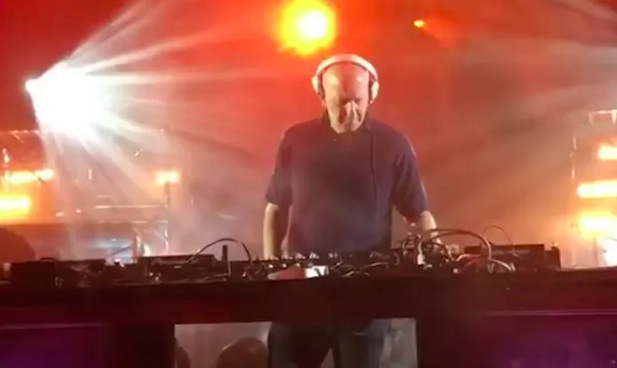Training Day: On Management, #27
"It takes a lot of training and a lot of institutional support to teach people things they would rather not hear." - Tressie Mc Millan Cottom
This month, I'm reflecting on what we expect from training, and Starbucks.
This time's audio is a reboot, and hopefully upgrade, of my 2016 conversation with diversity and inclusion expert Juliette Austin.
Thank you for inviting me to your in-box.
This Call Is Now Being Recorded: Juliette Austin
In the summer of 2016, I talked with Juliette Austin. Juliette is founder of FrankEvans Consulting, which provides organizations with diversity and inclusion strategy and implementation services.
Our discussion of diversity, inclusion and bias touched on training, and what individual leaders can do to make a difference.
Recent news events sent me back to our conversation. With Juliette's permission, I've edited our 2016 audio. It's crisper, and I feel that I've retained the spirit of our original conversation.
Many thanks to Juliette Austin for being open to this reboot.
Let's Talk About Training. And Starbucks.
If you read about learning at work, you may come across “70-20-10.”
70% of learning comes from experience. 20% from other people. And, 10% from formal training and coursework. Or so they say.
70-20-10 is likely more an aphorism than a fact of math. That said, its intuitive appeal aligns with academic discussion of deliberate practice as a prerequisite to expertise. (AKA the 10,000 Hour Rule.)
We expect training to change minds, and behaviors. That's a heavy lift.
You probably know from experience that training isn't a silver bullet.
Every MBA is not a good people manager. QED.
Starbucks will close their US stores on May 29 for "racial bias education," after an arrest in a Philadelphia store -- two men, who were waiting for a colleague while black.
In over 20 years as a customer and Starbucks-watcher, I’ve almost never observed interpersonal conflict between employees behind a Starbucks counter.
I once asked a Starbucks employee, basically, where's the drama?
She said something like, No, you wouldn’t see that. We handle it at the back of the store.
What we see at the front of the store is Brand. Employee behavior is shaped behind the scenes.
So what will happen when Starbucks stores re-open after a few hours of training?
I don’t know.
What I do know: when you’re a people manager, your work will make or break the impact of any training.
In 70-20-10, you are Other People; you influence Experience, and how your team members engage in deliberate practice at work.
How can you help training to be important? Put things in context.
Have 1:1 discussions with anyone who is heading off to a training session.
- What they plan to learn? (Have them write it down.)
- What do you want them to learn, or do differently, after the training?
- Put a post-training de-brief on both of your calendars.
At your debrief, ask:
- What did they learn? Was there anything new, or unexpected?
- What action(s) will they take?
- How can you help them to be accountable for following through?
- What actions can you take to bridge inevitable gaps between ideas presented in the training, and how things really work?
By the way, your attitude matters, too. Hold the snark and the eye-rolls.
On May 30, we’ll see what Starbucks shows us. At the front of the house.
Real change will require ongoing institutional support. The kind of support that results in the low drama environment we see behind the counter.
And not just at Starbucks. At all of our organizations. By us.
What I've been reading, &
- "...Fellas, can you imagine you're just on your phone, and someone walks up to you and just takes it out of your hand? And they're like, 'OK dude, I don't know why you're getting so upset'..." Tracee Ellis Ross, A woman's fury holds lifetimes of wisdom (h/t Blavity)
- "...Our findings demonstrate that Black employees have to “fake it to make it” more than their White counterparts..." Fake It to Make It? Emotional Labor Reduces the Racial Disparity in Service Performance Judgments, by Alicia A. Grandey, Lawrence Houston III, and Derek R. Avery at Journal of Management.
- "Unless we make the implicit explicit, we leave our new hires to wander in the desert of unspoken norms and expectations, internalizing their mistakes as shortcomings..." The Language of the Workplace, by Mimi Fox Melton and Naomi Uwaka at Increment.
Let's Talk About Starbucks
- "...the thing about inclusive spaces, about creating and maintaining them, is that they are a lot of work...Do y’all think Starbucks is up to that?" Gene Demby, in Being Black in Public: When you’re black in America, you’re either seen as a problem or not seen at all. By Jamelle Bouie, Gene Demby, Aisha Harris, and Tressie McMillan Cottom.
- "Perhaps the way we've been practicing fairness is flawed." Alexis McGill Johnson, talking with Ailsa Chang, A Lesson In How To Overcome Implicit Bias.
- You know what else takes place in Rittenhouse Square? Not about Starbucks, but about race, class and the workplace: Trading Places. 35 years later, still relevant.
P.S. October 3, 2018
I’m slowly adding some of my old newsletters out here on Substack, backdated to the original publication date.
This (free) issue went out in late May, and I’m posting it because it relates, somewhat, to Issue #31, where I discussed how to prep to attend a (people) management training.
(In June, I shared an Issue #27 reading list with Supporting Members, aka paying subscribers.)
If you have questions, comments or suggestions, please hit me up!





